10 oldest religions in the world

The history of human spirituality
The history of human spirituality may be as old as humanity itself, yet the formation of organized religions is a more recent phenomenon. The oldest religions in the world have shaped cultures, laws, and history. These religions offer insight into the lives of our ancestors and the evolution of belief systems over time.
Image: Canva
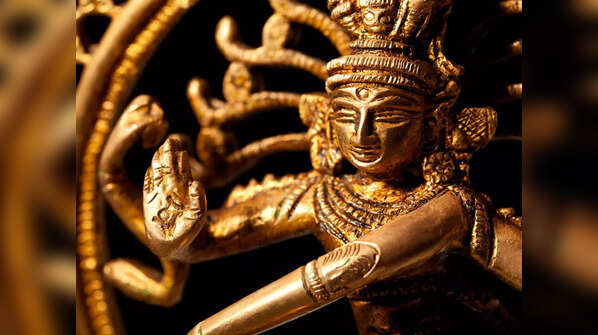
Hinduism
Hinduism, known as Sanātana Dharma, or “eternal order,” has its origins in the Indian subcontinent. Rooted in the Vedic culture, it’s a fusion of various Indian cultures and traditions with no single founder. The Rigveda, the oldest scripture, dates back to around 1500 BCE. Hinduism is characterized by a variety of practices such as rituals, meditation, yoga, and temple worship.
Image: Canva

Judaism
Judaism traces its roots to the covenant made between God and Abraham around 2000 BCE and the subsequent laws given to Moses on Mount Sinai, which include the Ten Commandments. It’s centered on the worship of one God and the practice of Torah study and observance. The destruction of the Second Temple in 70 CE was a pivotal event that led to the diaspora of the Jewish people. Jews have lived in various countries around the world, often in small communities known as the Diaspora, maintaining their religious and cultural practices despite dispersion and adversity.
Image: Canva

Zoroastrianism
Founded by the prophet Zoroaster in ancient Persia, Zoroastrianism is one of the world’s oldest monotheistic religions. The sacred text, Avesta, contains hymns and directives attributed to Zoroaster himself. The religion emphasizes the battle between the good spirit, Ahura Mazda, and the evil spirit, Angra Mainyu.
Image: Canva
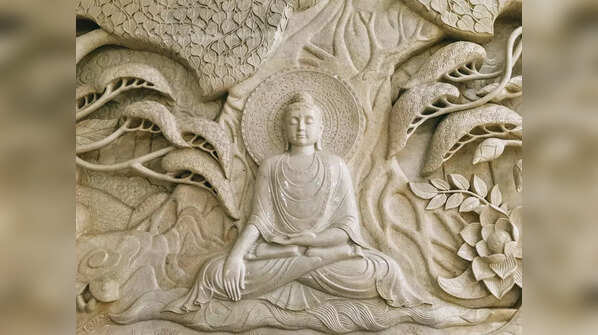
Buddhism
Buddhism began with the enlightenment of Siddhartha Gautama, the Buddha, in modern-day Nepal. The Four Noble Truths and the Eightfold Path constitute the essence of the Buddha’s teachings, focusing on the cessation of suffering and the cycle of rebirth. The first Buddhist council was held shortly after the Buddha’s death, around 483 BCE.
Image: Canva
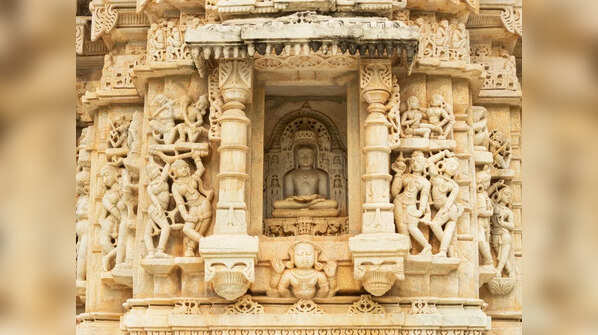
Jainism
Jainism emerged in the same spiritual climate as Buddhism in India. It was formalized by the teachings of Mahavira, the 24th Tirthankara, who lived around the 6th century BCE. Jainism is characterized by principles of non-violence, non-possessiveness, and asceticism. Jains are known for their strict adherence to vegetarianism and non-violence.
Image: Canva
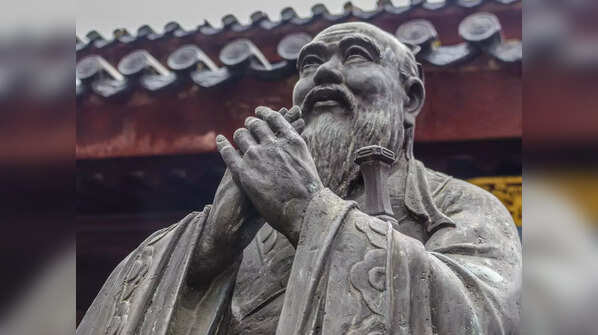
Confucianism
Confucianism, developed from the teachings of the Chinese philosopher Confucius, is not a religion in the traditional sense but a system of social and ethical philosophy. The Analects, a collection of Confucius’s sayings, emphasizes the importance of personal ethics, familial respect, and social harmony.
Image: Canva
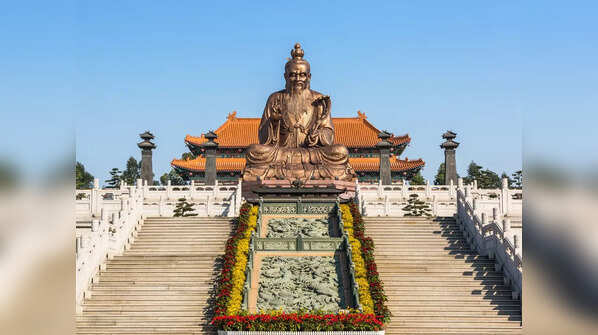
Taoism
Taoism, or Daoism, originated with the teachings of Laozi, as recorded in the Tao Te Ching. It advocates living in harmony with the Tao, the underlying principle of the universe. Taoism has influenced Chinese culture with practices like Feng Shui, Tai Chi, and traditional medicine.
Image: Canva

Shinto
Shinto, or kami-no-michi, is the indigenous spirituality of Japan. Unlike other religions, it does not have a known founder or sacred scriptures. Shinto practices revolve around the worship of kami, spirits associated with natural phenomena, ancestors, and historical figures. The Kojiki and Nihon Shoki are the earliest records of Shinto practices, dating back to the 8th century CE.
Image: Canva

Greek religion
The ancient Greek religion, practiced in Greece and the Aegean from around 1100 BCE to 400 AD, revolved around a pantheon of gods like Zeus, Hera, and Athena. It was polytheistic, with rituals and myths that explained the natural world and human experience.
Image: Canva









